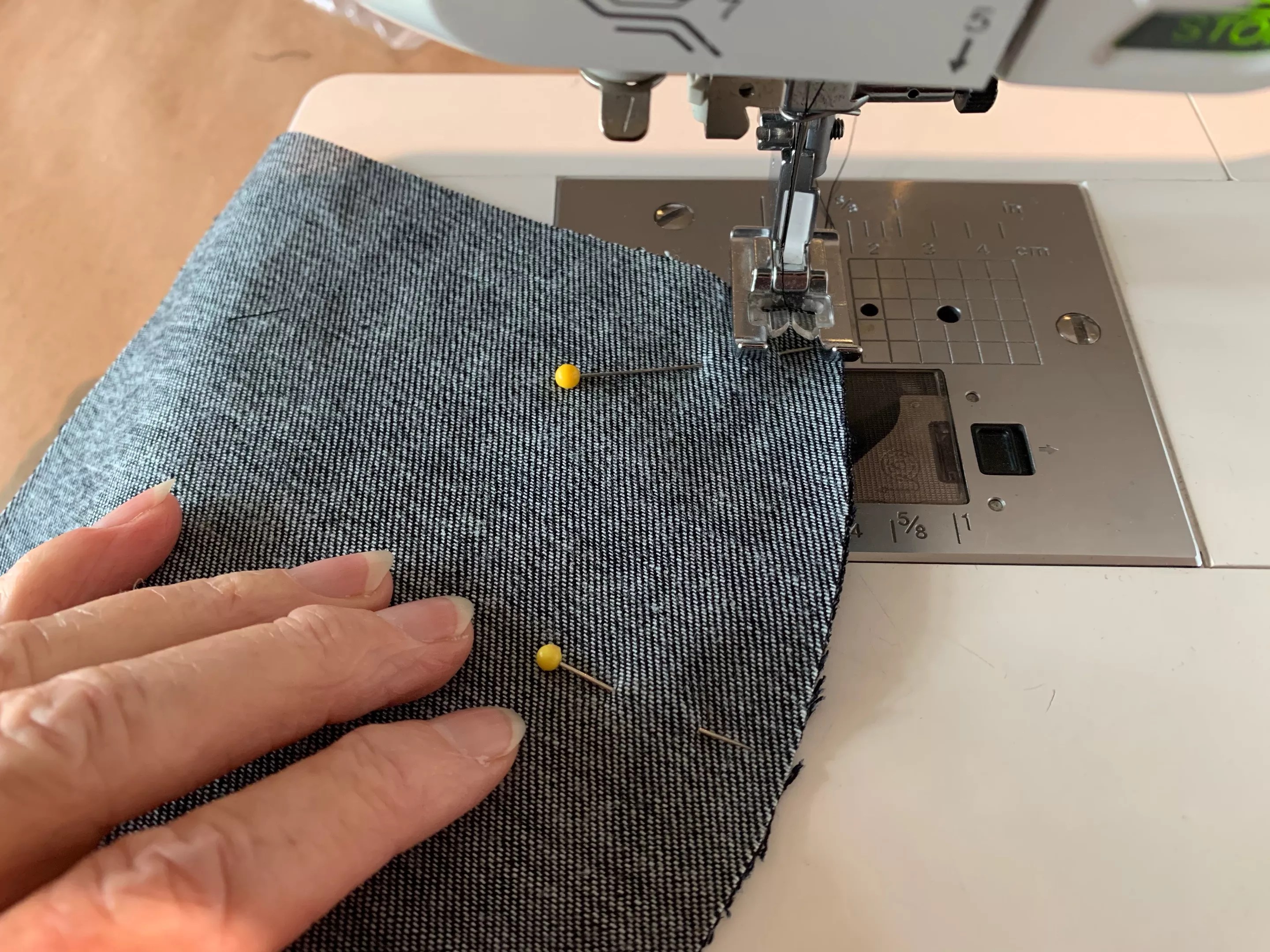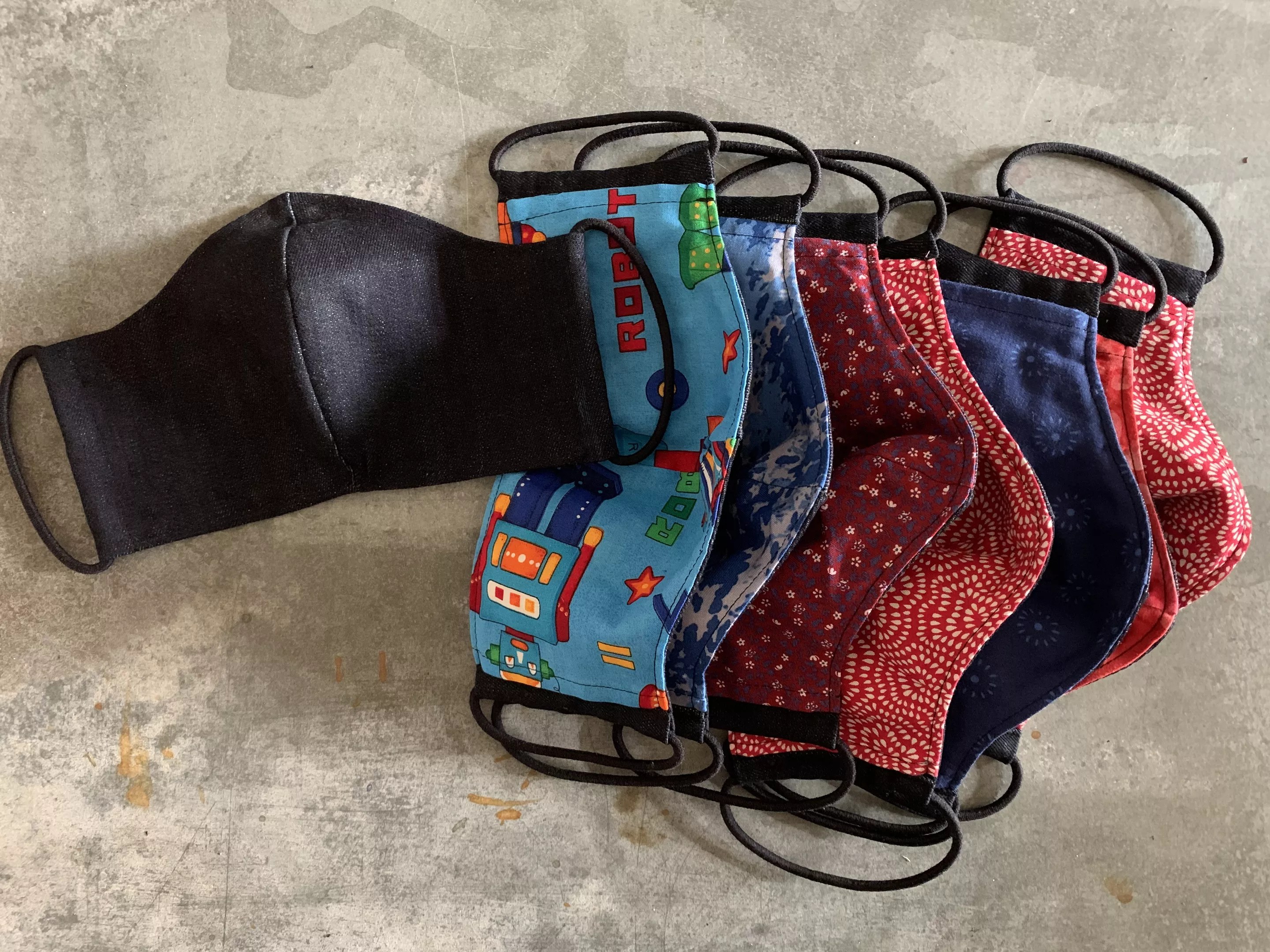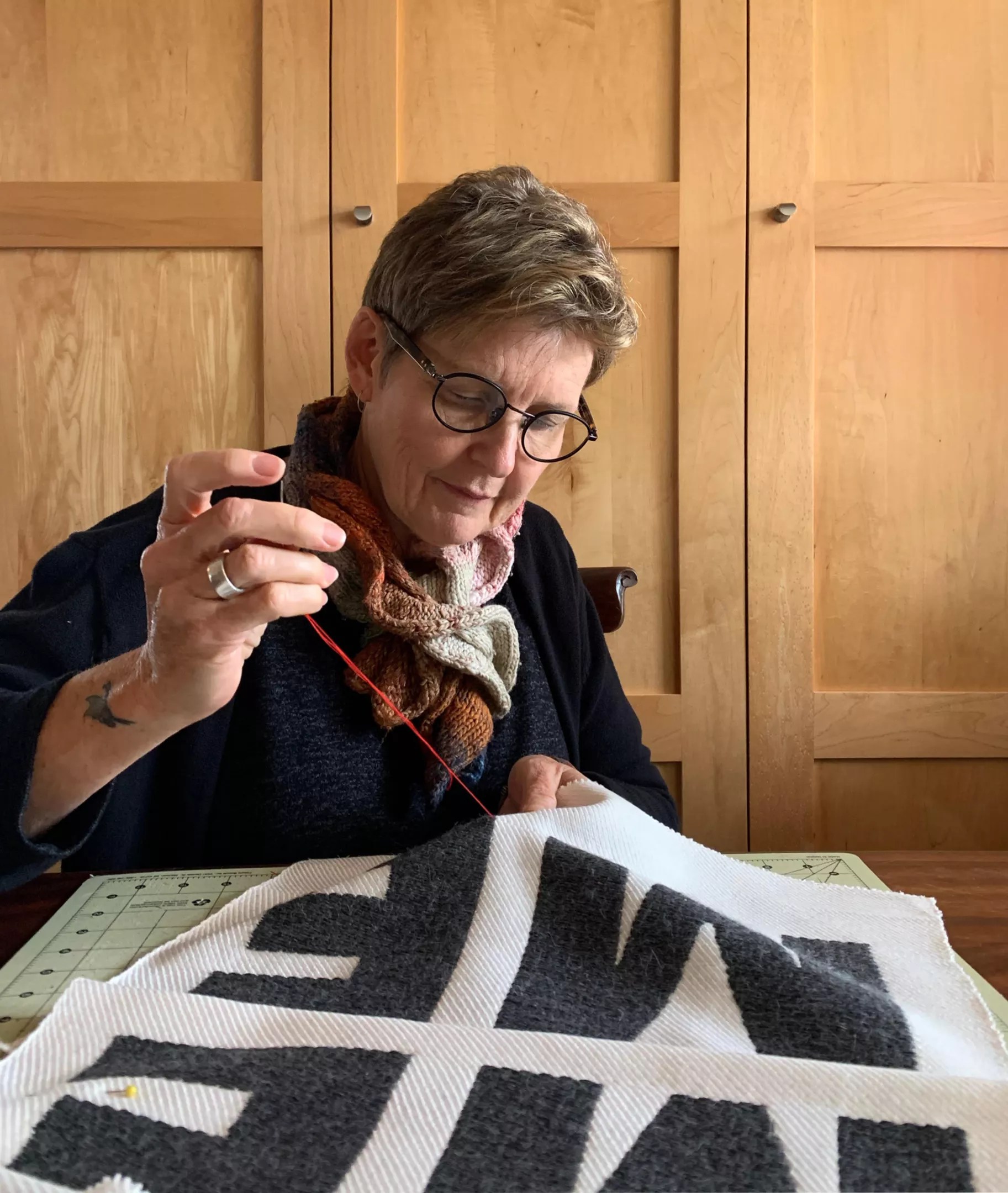
Ann Morton

Audio By Carbonatix
Phoenix textile artist Ann Morton is constantly transforming pieces of fabric into works of art. But now, she’s found a new way to use her sewing skills – creating face masks that can help people worried about contracting the COVID-19 virus.
“A lot of people started sending me information about making masks,” she recalls. “But I had questions about whether they’d really be useful or how I’d actually get them to people who needed them.”

Masks made by Phoenix artist Ann Morton.
Ann Morton
Morton did a little digging, and discovered that a group called Relief Crafters of America is spearheading a nationwide mask-making effort. They handle the logistics of getting masks to places that need them, so crafters can focus on sewing the masks.
“I’m really excited to know that this is the same group that made nests and pockets for animals during the recent wildfires in Australia,” she says.
Morton started making the masks on March 23, and expects to finish 20 masks before the end of the week. “They’re not medical-grade masks,” she explains. “But they do have two layers, so you can slip a filter in between them if you have one.”

Ann Morton working in her studio.
Gracie Timmerman
Even so, the fabric masks can be helpful – especially for people who feel safer wearing a mask, but shouldn’t be depleting supplies needed by health professionals.
Several of her masks are made with red and blue fabric, because she’s got plenty of that on hand these days. Late last year, Morton launched a national project called the Violet Protest, which involves making small textile squares in red and blue to highlight values such as civility, creativity, and compassion.
She’s also created art that addresses various social issues, such as homelessness and recycling.
“The art that I find most meaningful has a service component,” Morton says. “At times like this, we can all bring our skills to help make a difference.”